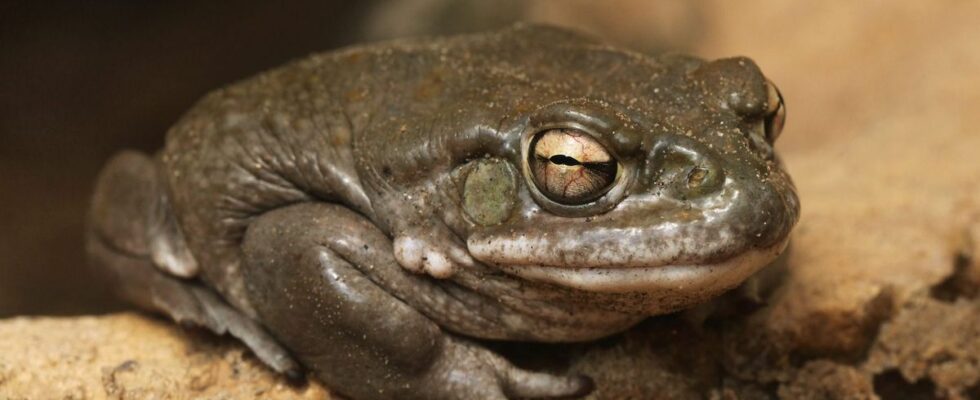Published on
Updated
Reading 2 min.
Modified venom from the Colorado River Toad could help treat depression and anxiety, according to American researchers. But further research is needed before this psychedelic compound enters the treatment of psychiatric disorders.
A modified psychedelic found in the venom of a poisonous toad could be an effective treatment option for depression and anxiety, a study suggests. new study published this week in the journal Nature .
The big bang of psychedelic research
Scientific research is increasing regarding the potential of psychedelics in the treatment of mental illnesses such as depression, anxiety and addictive disorders linked to the use of psychoactive substances.
How can we explain such efficiency? These substances are thought to interact with serotonin receptors. The majority of research on psychedelics has focused on a serotonin receptor called 5-HT 2A, with less effort focused on studying the role of another serotonin receptor, 5-HT 1A. But it is this particular receptor that researchers from Columbia University Dalibor Sames and the Icahn School of Medicine at Mount Sinai in New York were interested in.
Toad venom based on an anti-depression filter?
But an American team focused on the mechanism by which the hallucinogen 5-MeO-DMT (found in the venom of the Colorado River toad and associated with intense psychedelic experiences) interacts with 5-HT 1A. After examining the structure of the serotonin receptor in great detail and modifying specific sites in the compound, they developed a highly selective variant of 5-MeO-DMT for 5-HT 1A, the effectiveness of which subsequently increased. been tested in mice.
Result: In tests, the compound was found to produce antidepressant activity similar to that of ketamine. An effect obtained without the hallucinogenic effects of the compound. “We are delighted to have identified a compound that has very potent therapeutic effects while avoiding the “psychedelic 5HT 2A receptor”” said Dr. David Lankri, a researcher in the laboratory of Columbia chemistry professor Dalibor Sames.
Tomorrow, new treatments for psychological disorders?
These discoveries pave the way for the development of new drugs treating neuropsychiatric disorders. However, further research is needed to assess whether these results could apply to humans. “We hope that the insights from our study and the ongoing research in our laboratories will prove useful in the development of the next generation of psychedelic-inspired medicines.“, said Professor Dalibor Sames, co-author of the study.
Beyond the often dangerous recreational research linked to the use of psychedelic compounds (we recall in particular that the American National Parks Service had to urge visitors not to lick the skin of the Sonoran Desert toad, known for its psychedelic venom), studies on these compounds are multiplying, whether it is psilocybin from hallucinogenic mushrooms, NN-dymethyltriptamine (DMT), a powerful psychedelic taken from Ayahuasca, an Amazonian plant widely used by the tribal societies of the Amazon basin, etc.
